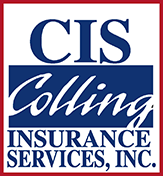When you move out of your parents’ house and start your college or professional career, the world seems to open up. The independence that comes with that move is both exhilarating and nerve-wracking. But newfound freedom comes with a couple caveats. One of the biggest? The financial obligation.
From groceries and rent to clothing and apartment decor, you have many bills to account for once you live on your own. If you drive a car, your auto insurance rates add to this increasing list. But there are ways to decrease that bill if you know a few tricks.
Compare Companies
The first step you must take toward finding your best auto rate is to shop around. Many people ignore this step and simply renew with their current company or sign with the most popular establishment. That quick choice could hurt your bottom line. But it is difficult to compare auto insurance quotes on your own because you aren’t familiar with the process.
Work with an independent agency that will find the best rate for you. Professional agents use their skills to access the policy that gives you the coverage you need at the price you want.
Take Care on the Road
You should already do your best to drive safely. There are inherent benefits that come from safe driving practices, but lower auto insurance rates is an added bonus.
Whenever you get into a fender bender or receive a speeding ticket, the state notes the incident on your driving record. Most states use a points system to track your violations (and their severity). Some minor infractions like forgetting your proof of insurance or driving with a broken taillight do not incur points. Instead, you will likely just pay a fine. However, larger violations accrue points, and those points increase your rates.
At its most basic, insurance is a gamble. You bet that you might have an accident one day, so you choose to pay premiums. Insurance companies gamble that its customer base will pay more premiums than the company must pay out.
So, if you show insurance carriers that you are a high-risk gamble by speeding or causing accidents, they charge a higher premium to offset the risk. But the other side is true as well. If you display a clean driving record and continue to drive safely, insurance premiums decrease.
Study Hard
In School
Your classroom performance affects your transcripts-and your insurance rates. Young drivers often pay higher rates because they have less experience behind the wheel, and that inexperience creates a higher accident risk. Good grades can reduce some of that cost. Insurers give many reasons for this policy, but the most common is that the high GPA shows you are attentive in school, which could translate to caution on the road.
In Defensive Driving Courses
In addition to standard school classes, consider taking a supplemental driving course. Many insurance companies offer discounts if you complete a defensive driving class, but make sure that you speak with your agent before you sign up. He or she will inform you about the discount rates and accredited classes in your area.
Recover (or Build) Your Credit
Many insurance companies review your credit before they offer a rate. Why? Like their school comparison, they believe that if you are careful with your credit, you will be more careful with your car. If your credit is on the low side, don’t worry. There are many things you can do to improve it:
- Get a low-interest or secured line of credit.
- Make all payments in full every month.
- Keep credit accounts open as long as possible.
- Maintain a low balance on all credit accounts.
- Review your credit report, and dispute any mistakes.
Your higher credit score may translate into lower auto insurance rates, so inform your agent when that important number raises.
Choose Age Before Beauty
Sleek, new cars may look great in the driveway. They may even make you feel great when you cruise around town. But they won’t make you feel great when you see your insurance bill every month. Top-of-the-line vehicles tempt thieves, and their repairs tend to be expensive.
To cut down on insurance costs, choose an earlier model. However, always choose a vehicle that you will feel safe in and that will survive your commute. It’s not worth finding a car that has low insurance potential if it has to visit the repair shop once a month.
Install Security Features
If you already have a late-model vehicle and need a way to decrease your current insurance, install a few anti-theft features.
Speak to an agent about discounts for car alarms, hood and tire locks, tracking systems, and kill switches. Some of these devices are pricey, so weigh them against the discount amount before you make an investment.
Now that you know a few ways to decrease your insurance rates, get started. This is an important step for any driver, so don’t wait to get your affordable coverage today.




 Email an Agent
Email an Agent


 Click to Call
Click to Call Get Directions
Get Directions